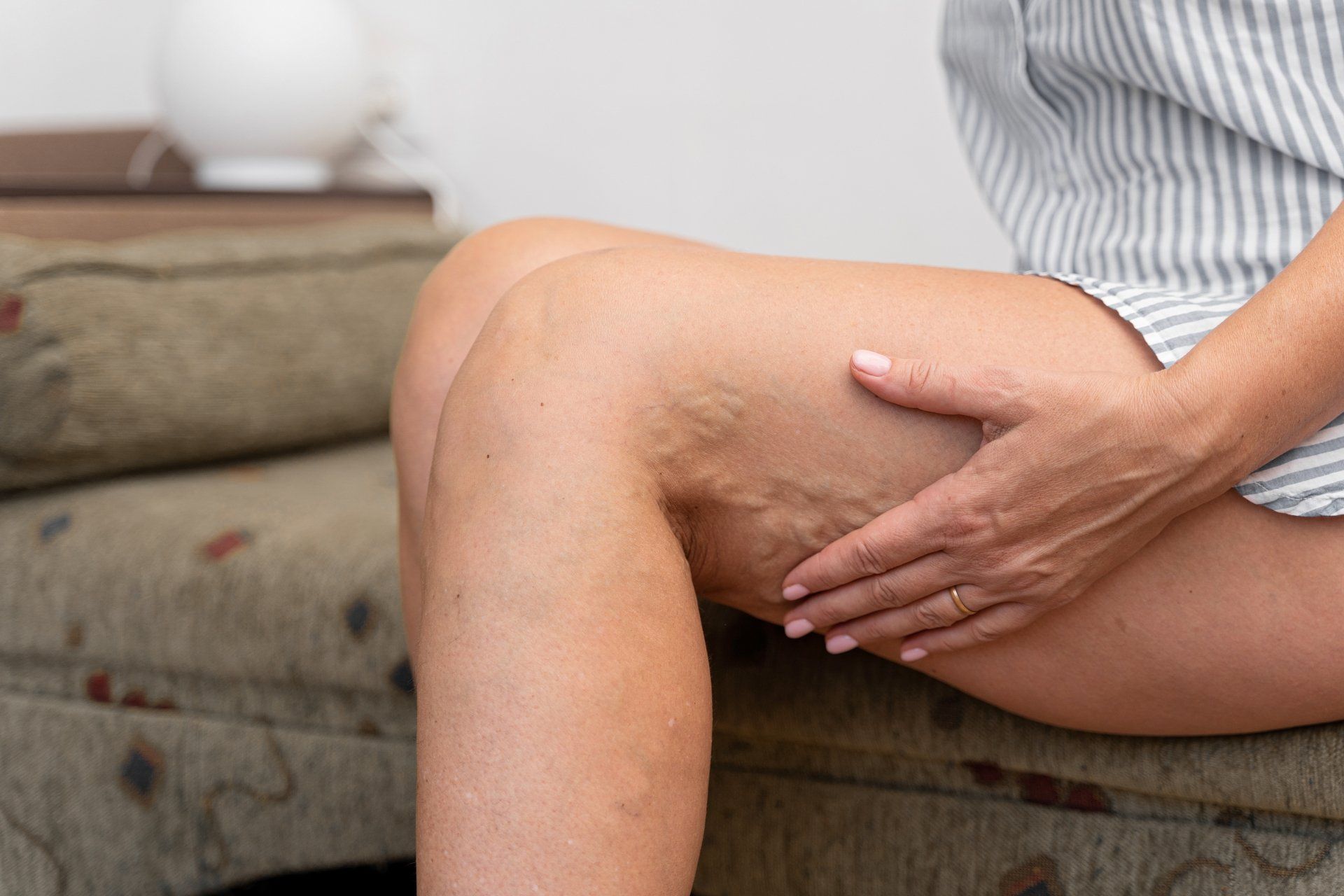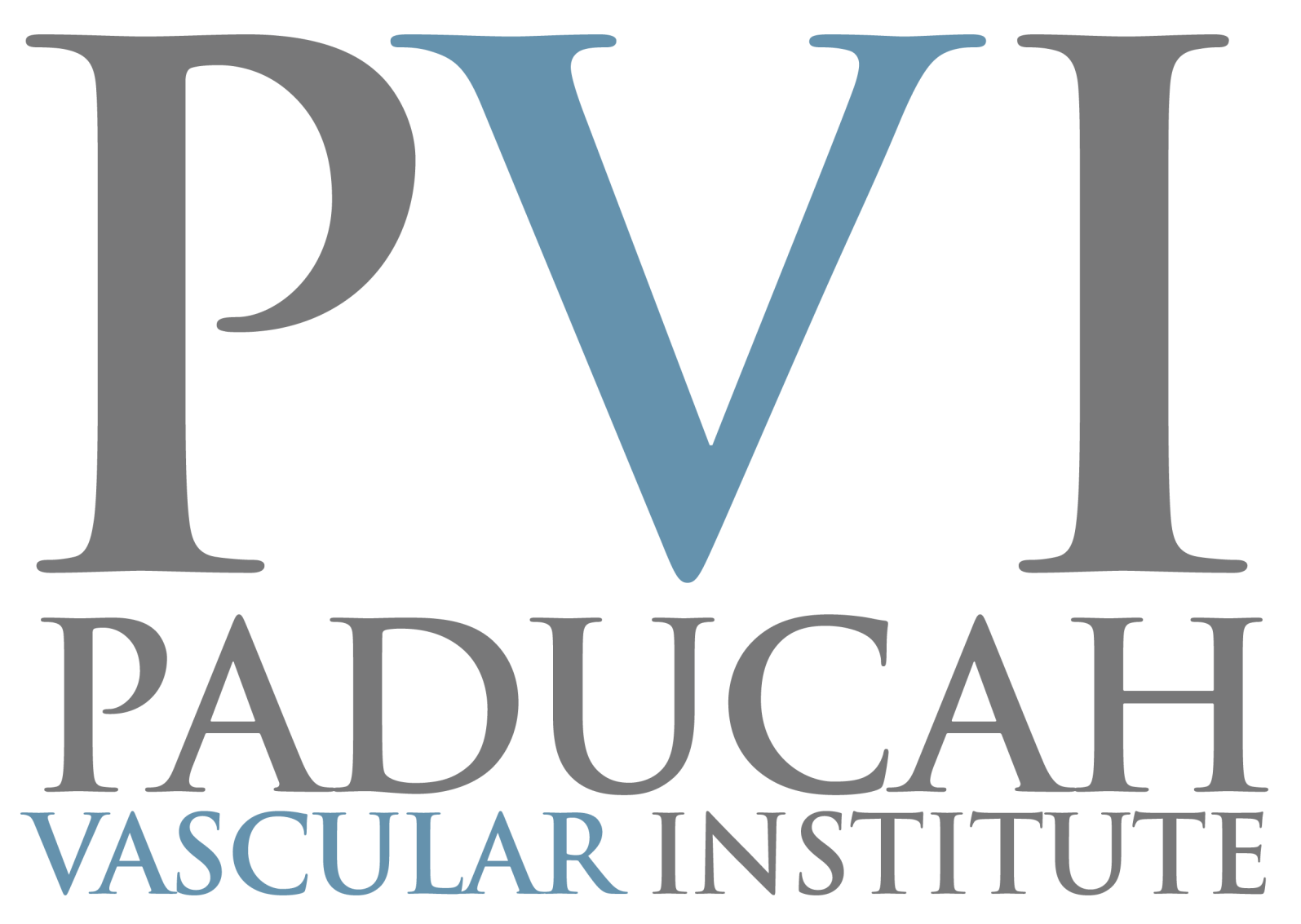Varicose Veins

Varicose Veins are more than just a cosmetic issue. These large, bulging, grapelike veins can cause pain as well as blood clots (phlebitis), skin ulcers, and even bleeding. When the system of valves within the veins becomes “incompetent” and no longer pushes the blood upward toward your heart, blood begins to pool within the vein. This most often occurs in the lower legs because we stand on our feet a lot, and the pressure is greatest in the lower legs because of gravity. This puts pressure on the veins which then dilate/bulge. The veins try to release this pressure by leaking fluid into the fatty tissues which causes swelling and inflammation.
This can cause aching and pain. It can also cause bluish discoloration because of the pigment that leaks out of the veins deposits in the skin (hyperpigmentation). Over a long time, this inflammation can cause the skin to scar and may eventually cause a venous stasis ulcer (sore on the lower legs).
Paducah Vascular Institute is a leader in the venous specialty field in Paducah, KY. Our vascular surgeon specializes in diagnosing & treating varicose veins. We can help discover the best treatment plan for you, whether it be conservative management, endovenous ablation of the vein, foam sclerotherapy, or micro stab phlebectomy. For more information, call Paducah Vascular Institute at (270) 845-4300 to schedule an appointment.


